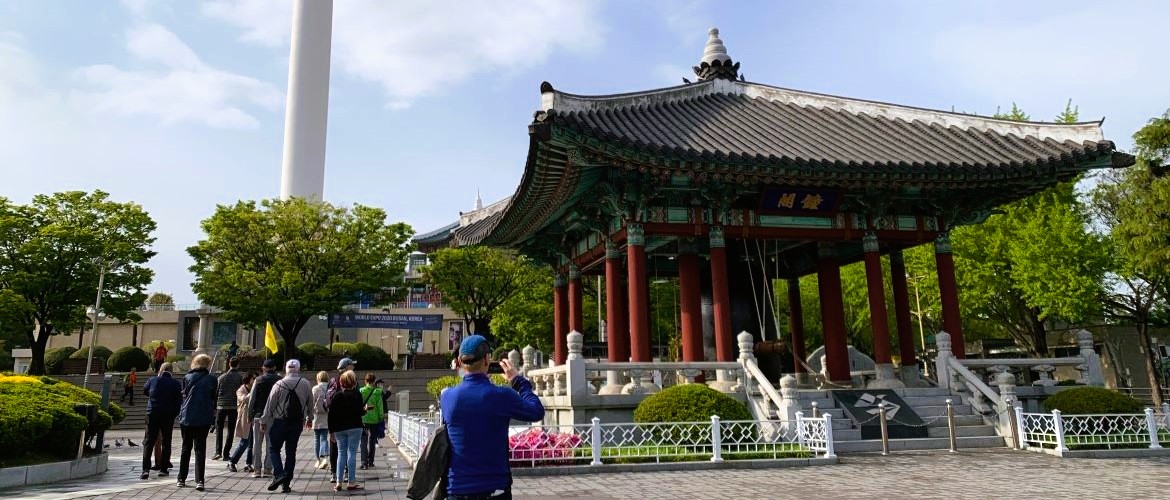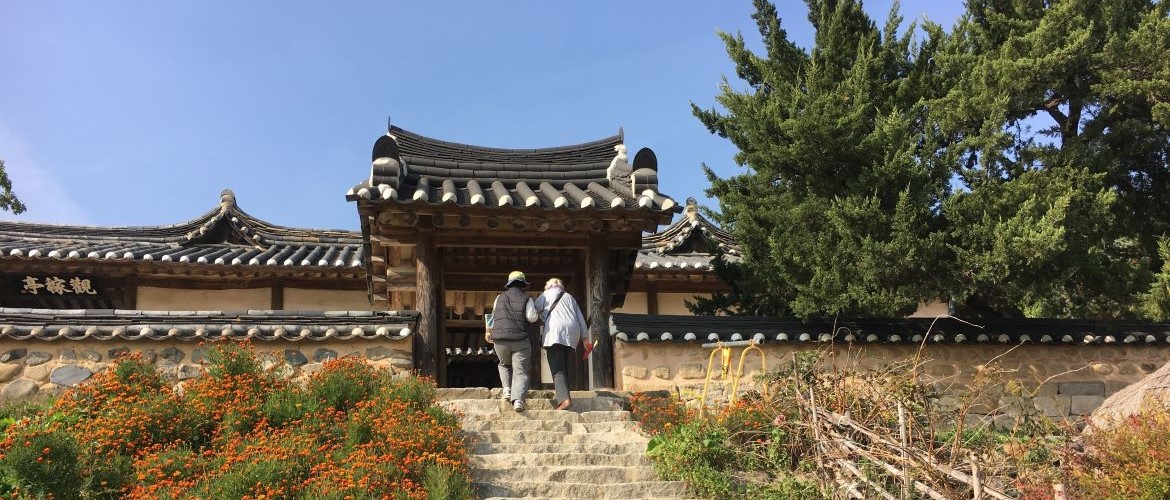
Seoul – Busan – Gyeongju – Yandong Folk Village – Seoul
This South Korea tour allows you to experience the perfect blend of ancient traditions and modern marvels the country has to offer. From bustling cities to serene temples and breathtaking landscapes, this tour invites you to immerse yourself in the rich culture, history, and beauty of a truly captivating destination.
Sign up today to discover the Heart and Seoul of South Korea with Laurus Travel, your true South Korea expert!
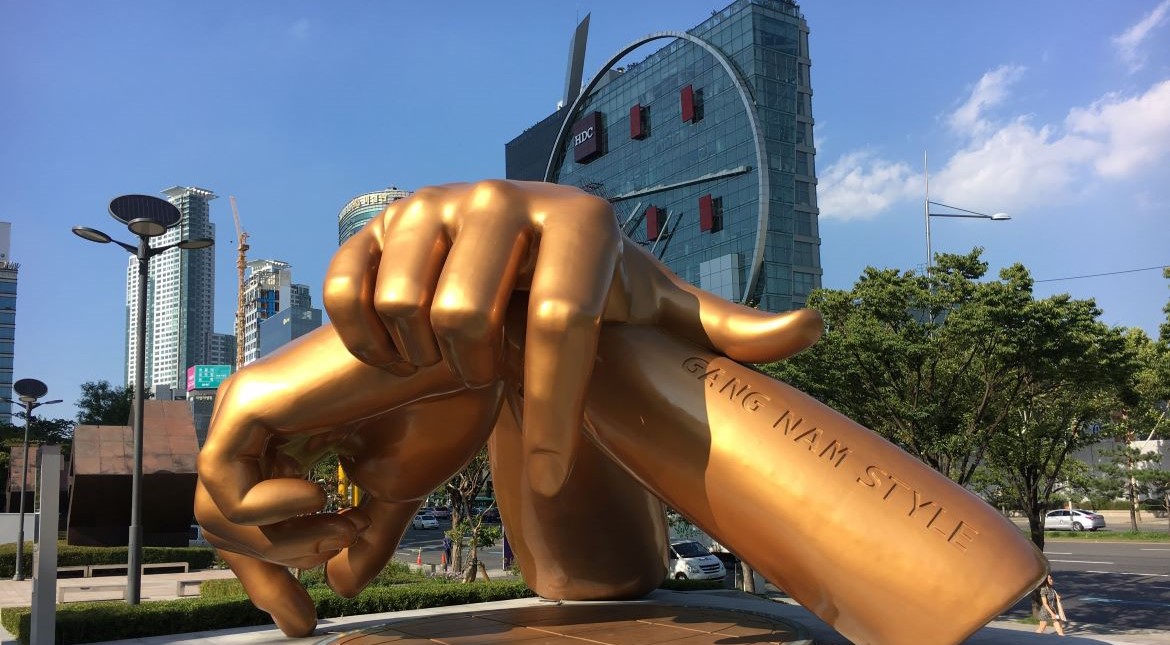
Meal Code: B = breakfast / L = lunch / D = dinner
Day 1/Thu: Departing for Seoul
Your South Korea tour begins with your international flight departing from a city of your choice. International air is not included but can be added on request. You’ll lose a day upon crossing the International Date Line.
Day 2/Fri: Arrival in Seoul
Transfer to the centrally located hotel on your own, which can be easily done by taxi or airport express train. Detailed information on hotel transfer will be provided close to departure date.
Day 3/Sat: Seoul (B/L)
Seoul, the capital of South Korea, is a huge metropolis where modern skyscrapers, high-tech subways and pop culture meet Buddhist temples, palaces and street markets.
We spend the morning visiting the the Demilitarized Zone (DMZ). The DMZ divides North Korea and South Korea and is one of the last remnants of the Cold War. The DMZ runs across the Korean Peninsula and roughly follows the 38th parallel north (popular name given to latitude 38° N) on an angle, with the west end of the DMZ lying south of the parallel and the east end lying north of it. With over a million soldiers on watch each day, this stretch of land measuring 250 kilometres (160 miles) long and about 4 kilometres (2.5 miles) wide is the most fortified border in the world.
Afternoon sightseeing includes Gyeongbok Palace and Bukchon Hanok Village (traditional residential area on a hill inside the city).
Day 4/Sun: Seoul – Busan (B/L)
After breakfast, we ride the high-speed train (KTX #313, 08:00/10:33) to Busan.
Busan, sometimes spelled as Pusan, is the largest port and second largest city in South Korea with a population around 3.5 million. The city is known for its beaches, mountains, temples, and long history of trade and cultural exchange with Japan.
Today’s sightseeing in Busan begins at the United Nations Memorial Cemetery. Established in January 1951, the 35-acre burial ground contains 2,300 graves of fallen soldiers who fought on the side of the United Nations during the Korean War (Jun 25, 1950 – Jul 27, 1953). The majority of the interred soldiers were from the Commonwealth of Nations including the United Kingdom (886), Canada (378), Australia (281), New Zealand (34) and South Africa (11). A South Korean guard of honour carries out flag ceremonies daily.
We then proceed to Jagalchi Fish Market, the largest seafood market in South Korea.
We wrap up the day with a leisurely walk at Haeundae Beach.
Day 5/Mon: Busan – Yandong Folk Village – Gyeongju (B/L)
Following breakfast, we board the high-speed train (KTX #116, 08:40/09:13) to Gyeongju, the capital of the 1,000-year-long Silla dynasty.
First on today’s schedule is Yangdong Folk Village, a UNESCO World Heritage site. The village has a history dating back to the Joseon Dynasty (1392 – 1897). Afternoon sightseeing begins at the 8th-century Bulguksa, a magnificent Buddhist temple featuring stone pagodas, a series of wooden buildings on raised stone terraces, and a large bronze Buddha. A masterpiece of the golden age of Buddhist art in the Silla kingdom, the temple is classified as Historic and Scenic Site No. 1 by the South Korean government and is also listed by UNESCO as a World Heritage Site.
The Gyeongju National Museum is next on our schedule. The museum houses a large collection of relics from the Silla era giving the visitor a deep insight into the ancient kingdom.
Day 6/Tue: Gyeongju – Seoul (B/L/D)
The morning rail journey back to Seoul takes just over 2 hours (KTX #024, 10:25/12:33).
After lunch, we tour Bukchon Hanok Village, a residential neighborhood with many restored traditional Korean houses. We then spend the rest of the afternoon exploring the War Memorial of Korea.
Day 7/Wed: Seoul (B)
Free day to explore on your own. We recommend the National Museum of Korea and Changdeokgung (Changdeok Palace).
Day 8/Thu: Returning Home (B)
Your memorable South Korea tour ends this morning. Transfer to Incheon International Airport, 50 km west of Seoul, on your own. Taxi costs between 70,000 and 100,000 Korean won (US$56 to US$80) including expressway toll charge, but most of our guests prefer the airport limousine bus for its convenience and low cost. The Airport Railroad Express which costs 9,500 won (US$7.50) one way per person is even more affordable. Detailed information on airport transfer will be included in the final update two weeks before the tour starts.
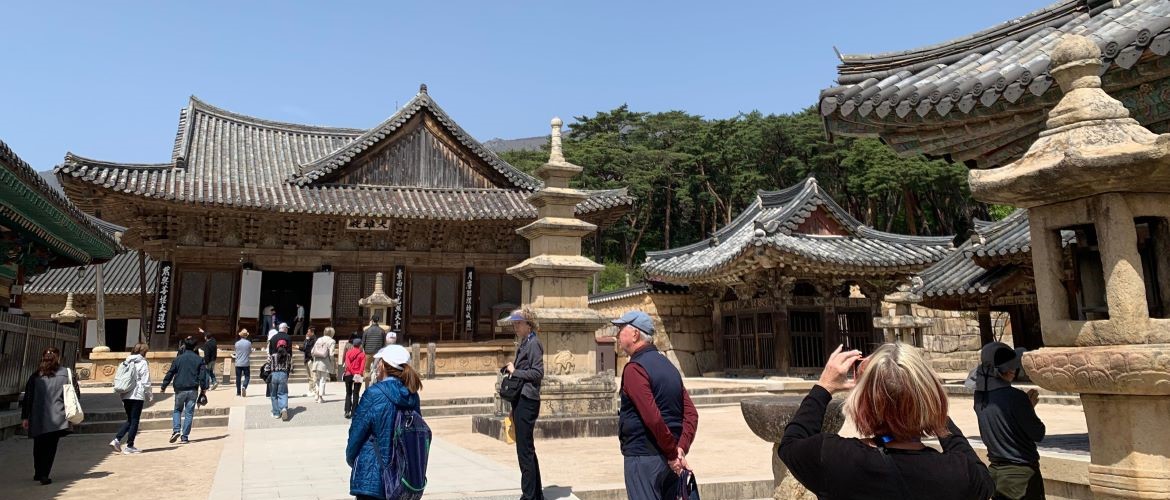
| City | Night | Hotel | Category |
| Seoul – 1st stay | 2 | Four Points by Sheraton Josun, Seoul Station | Premium / 4 stars |
| Busan | 1 | ASTI Hotel Busan Station | Premium / 4 stars |
| Gyeongju | 1 | Lahan Select Gyeongju | Premium / 4 stars |
| Seoul – 2nd stay | 2 | Four Points by Sheraton Josun, Seoul Station | Premium / 4 stars |
Dates and Prices
discount available
Prices are per person based on double occupancy. See Terms & Conditions for cancellation penalty.
| Depart (Thu) | Return (Thu) | Land Only CA$/US$ |
Single Supplement CA$/US$ |
| 2025 | |||
| 26-Jun | 03-Jul | $4,550/$3,365 | $1,420/$1,050 |
| 17-Jul | 24-Jul | $4,550/$3,365 | $1,420/$1,050 |
|
What the tour price includes:
|
What the tour price excludes:
See Terms & Conditions for more information. |
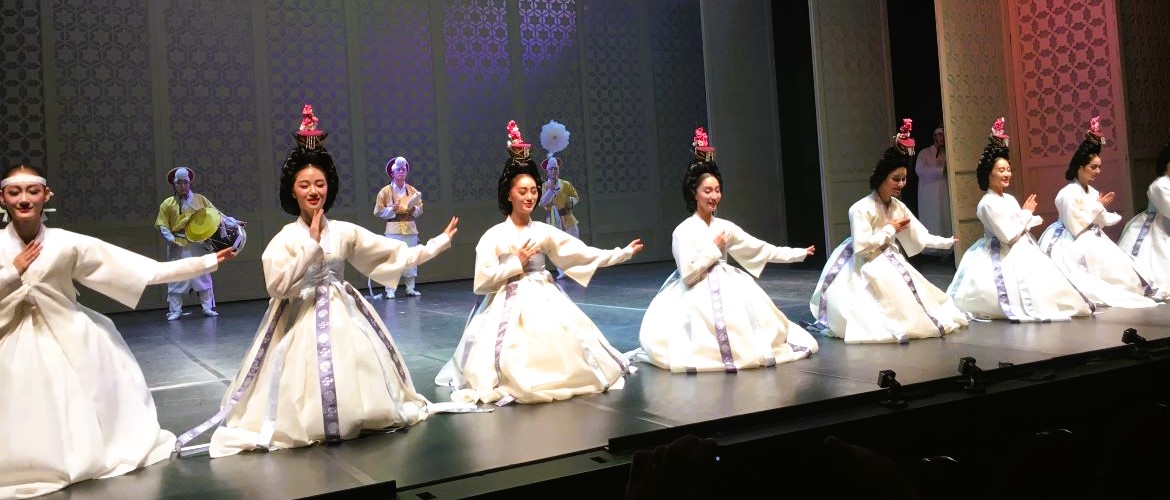
Passport & Visa
Your passport needs to have at least one blank visa page and six months validity at the end of the tour.
If you are a visitor from Canada, the US, the UK, Australia and New Zealand, you do not need a visa to enter South Korea as long as your stay is within 90 days.
Vaccination
No vaccination is required to enter South Korea.
Travel Health
South Korea enjoys high standards of public health. Tap water is potable. Some locals may boil tap water to get rid of the possible taste of chlorine. Always carry a roll of toilet paper and a bottle of hand sanitizer. In general, public toilets do not provide paper towels for hand drying; many of them have no electric hand dryers either. You may want to carry around a small towel as many locals do. Footwear must be removed when you go indoors at some temples, historical sites and traditional restaurants; it is advisable that you carry one pair of thick socks in your day pack to keep your feet comfortable at such places.
Local Currency & Credit Card
South Korea: won (KRW)
Withdrawing cash from local ATMs after arrival remains our recommended method of currency exchange. Keep your inventory of local currency low. Your tour fare already covers all the expensive items. You only need some cash for incidentals and meals not included in the tour price. Credit cards are widely accepted across South Korea. Use credit card wherever allowed unless your card issuer charges hefty foreign transaction fees.
Travel Insurance – When to Buy
Your deposit will be kept as credit if you cancel for any reason. The transferable credit has no expiration date. Therefore, it may be unnecessary to spend $30 to $50 on cancellation insurance just to protect the deposit.
However, purchase of trip cancellation & emergency medical insurance is strongly advised when your balance is due. If you don’t have proper coverage, the loss can be devastating in case of cancellation before or after commencement of the booked trip or in case of a serious medical emergency during the trip. Please ask us for premium quotes when your balance due date is near.
